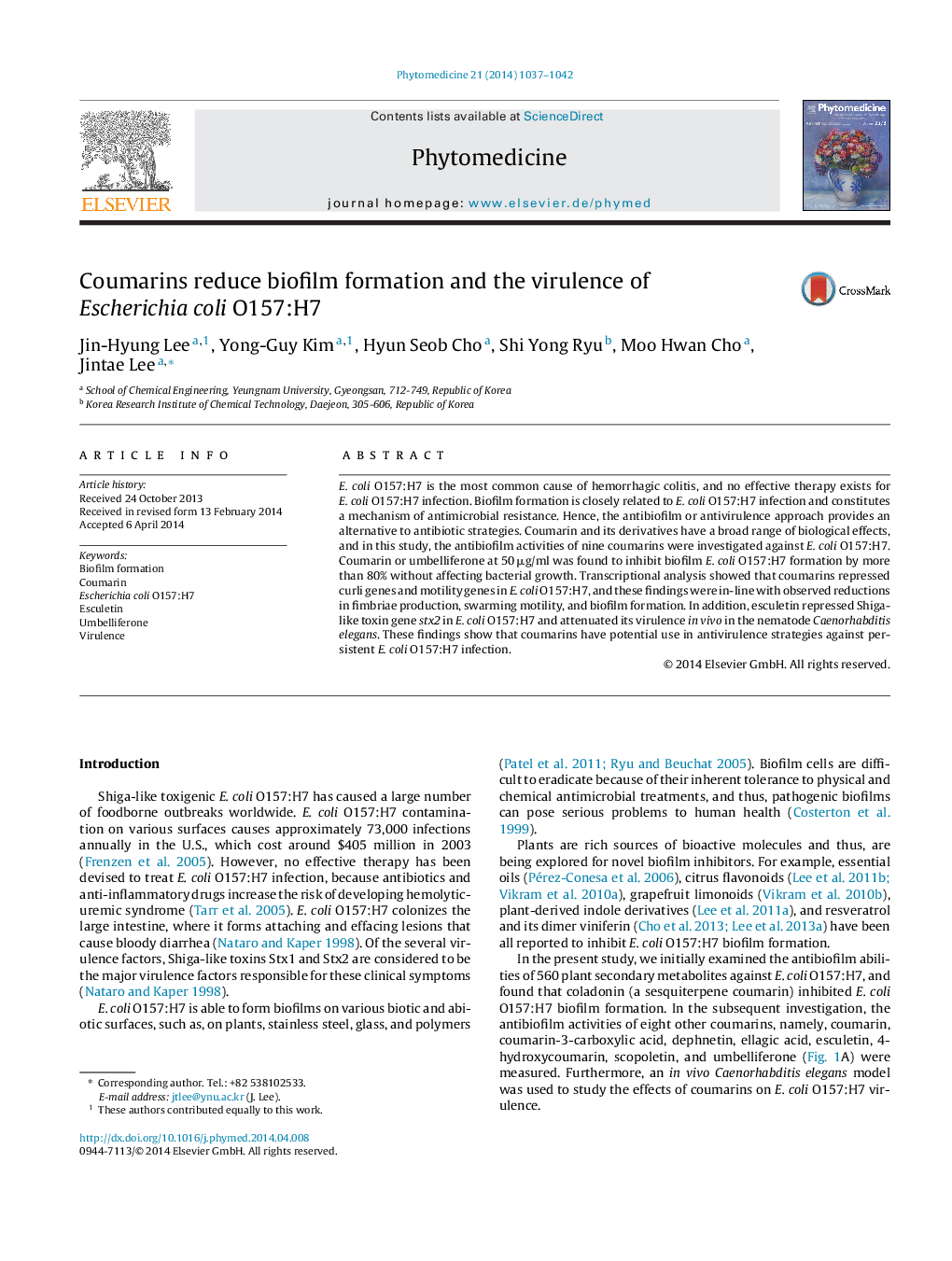| Article ID | Journal | Published Year | Pages | File Type |
|---|---|---|---|---|
| 5816382 | Phytomedicine | 2014 | 6 Pages |
E. coli O157:H7 is the most common cause of hemorrhagic colitis, and no effective therapy exists for E. coli O157:H7 infection. Biofilm formation is closely related to E. coli O157:H7 infection and constitutes a mechanism of antimicrobial resistance. Hence, the antibiofilm or antivirulence approach provides an alternative to antibiotic strategies. Coumarin and its derivatives have a broad range of biological effects, and in this study, the antibiofilm activities of nine coumarins were investigated against E. coli O157:H7. Coumarin or umbelliferone at 50 μg/ml was found to inhibit biofilm E. coli O157:H7 formation by more than 80% without affecting bacterial growth. Transcriptional analysis showed that coumarins repressed curli genes and motility genes in E. coli O157:H7, and these findings were in-line with observed reductions in fimbriae production, swarming motility, and biofilm formation. In addition, esculetin repressed Shiga-like toxin gene stx2 in E. coli O157:H7 and attenuated its virulence in vivo in the nematode Caenorhabditis elegans. These findings show that coumarins have potential use in antivirulence strategies against persistent E. coli O157:H7 infection.
Graphical abstractDownload high-res image (321KB)Download full-size image
